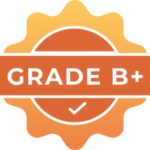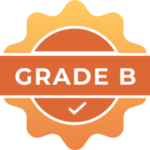2022 has been a year of upward momentum for international education. Following an 18-month stretch that had many industry professionals wondering how student preferences and mobility would be impacted, the industry is thriving.
We released our inaugural ApplyInsights Trends Report at the tail end of 2021—a project detailing the top trends coming in 2022 and beyond. On the heels of the Trends Report, we identified 5 key developments to watch for this year. We also released predictions in early January for what Australia’s road to post-pandemic recovery would look like.
As we head into the final three months of the calendar year, we’re looking back on predictions we’ve made in the last year, comparing them with what we’ve learned since. What did we get right, where did we miss the mark, and what questions have yet to be answered? Let’s find out.
Key Insights at a Glance
- In line with our January predictions, China, India, and Nepal have collectively driven a massive rebound in Australia, accounting for 49% of student visas granted in 2021/22.
- The US government has made several policy changes which expand post-graduation working opportunities for international students studying at US institutions.
- Growth out of Nigeria remains impressive across all major destination markets, with substantial growth in 2022 relative to other countries.
- 2022 has seen the continuation of the “Double Cohort Effect” that saw enrollment numbers spike across the board in 2021.
Answering Our International Education Predictions
One piece at a time, we’re going to examine key predictions we’ve made. In a mid-year report card of sorts, we’ll evaluate our past predictions and break down what we’re still looking to understand.
2021 Trends Report: A Future of Opportunity
Our 2021 Trends Report married industry publications, government data, and internal ApplyBoard modelling to tell us what factors would drive recovery in our sector. Along the way, we projected several international education trends that would emerge over the coming decade.
Prediction: The Biden Administration will address backlogs in the US immigration system by encouraging more students to pursue Optional Practical Training (OPT) programs
After the US Departments of State and Education announced their intention to support international education in the US, there was much debate around what policy changes might actually come to fruition.
In January 2022, the White House announced policy changes that would increase post-graduation work opportunities for international students pursuing a career in STEM. Expanding the definition of one of the most popular fields of study among international students, the US added 22 additional “new multidisciplinary or emerging fields,” eligible for the OPT STEM Extension.
Among the 22 new fields are financial analytics and data science, two increasingly popular fields among international talent. One in every two international students in the US last year studied a STEM subject. This STEM expansion means an even higher share of next year’s international student population may be pursuing OPT.
In January, plans to increase the approval rate of US student visa applications, as well as extensions to visa interview waivers for many international students, were also announced.

Prediction: Institutions that are able to promote competitive work permit programs and connect students with local employers will have a key advantage as the international education sector emerges from the pandemic
So far in 2022, we’re seeing a major increase in the number of international students pursuing post-graduate work opportunities in the country they study in. There’s no better example of that than Canada’s Post Graduation Work Permit Program (PGWPP).
IRCC data revealed that over 133,000 students were approved for the PGWPP in 2021, surpassing 2020’s previous high mark by 10,000.1 Interestingly, Canadian colleges are driving this growth.
College diploma and certificate holders accounted for four of every 10 PGWPs issued in 2016. But PGWP distribution looks incredibly different today. In 2021, college graduates accounted for the largest share of PGWPs issued across all study levels, at nearly 65%.
Nine of the 10 fastest-growing institutions by PGWP approvals from 2016 to 2021 are ApplyBoard partner schools.
Eight of the top 10 colleges by PGWPP approvals were also included in the top 10 institutions for international students in Canada during 2021 (Jan-Aug). These colleges hold a competitive advantage in recruiting students focused on pursuing post-graduation work opportunities.
A driving force behind this shift is likely the practical, experiential learning that’s woven into Canadian college education. Applied learning is a pillar of these institutions, which helps equip students to go out into the workforce and make an immediate impact. Canadian colleges offer students a streamlined path to work after graduation, and international students are taking notice.
We expect the popularity of colleges to continue increasing as students carve out their wider plans to live and work in a new country.

Prediction: Nigerian student populations in major destination markets are poised to grow rapidly as the industrialization and development of many African countries reshapes recruitment efforts worldwide
Nigeria is already a top 10 market for Canada, the United States, and the United Kingdom. And Nigeria projects to become the world’s third-largest country by population by 2050. But, low visa approval rates have hindered a country with big potential.
The latest government data indicates that Nigerian interest in studying in Canada, the US, and the UK has never been higher.
Interestingly, Northern Ireland may be the biggest regional winner of the UK’s more welcoming policy changes. Nigerian enrollment in Northern Ireland grew nearly 700% from 2018/19 to 2020/21—a mere two-year period. While this is a relatively small sample size, we’re excited to see how the volume and quality of Nigerian applications will improve in the coming years.

International Education Trends to Watch in 2022
To ring in the new year, ApplyInsights dedicated a piece to exploring how students’ considerations and concerns would shift throughout 2022. We detailed the top trends to watch in international education throughout the year.
Prediction: Pent-up demand from international students will drive an enrollment boom in 2022
Near the close of 2021, we analyzed the potential impact of a pending “double cohort” effect.
The global increase in 2021 student visa applications came from three different places: students who deferred their acceptance during the pandemic (in some cases multiple times), first-time applicants, and applicants looking to relocate to a country with a stronger economy.
The pent-up demand created by all of these students created a “double cohort” effect—one unusually large cohort of students motivated by COVID-19 impacting their home countries and another cohort of students who deferred up to two years of education during the pandemic. ApplyBoard’s 2021 application data reflected this demand:
We saw this trend take place in 2021 and expected it to continue throughout 2022. Things appear to be trending in that direction. Let’s take a look at Canada, which recently released data through June 2022 revealing a total of nearly 168,000 Canadian student visa approvals. This is slightly ahead of 2021’s six-month total of 162,000:
Growing post-graduate work opportunities and high immigration rates continue to make Canada an attractive destination for students. It appears the overspill of pent-up demand was not entirely drained during 2021. Full-year 2022 approval totals are in line to eclipse 2021, setting a new high for international education in Canada.
Look for full academic year data released out of the US and UK to reflect more of a boom in growth relative to the previous year. This is largely due to 2021/22 data including students who were first eligible to accept their deferral or attend schools overseas post-pandemic.

Prediction: Tuition and living costs will influence destination decisions at an even higher rate
This one seems like a freebie. And it is, but our thoughts about students’ future budgets extended beyond it being a high priority. During the first 10 months of 2021, more than half of all students using the ApplyBoard Platform elected to only view programs with yearly tuition fees of 30,000 or less.2 We expected this trend to continue in 2022.
One of our biggest learnings throughout 2022 has been that international students’ budget targets actually hit their lowest point during 2021. In 2021, 56% of searches on the ApplyBoard Platform were for programs with annual tuition of under 20,000 per year.
In 2022, students were willing to spend more than in 2021 but not as much as in 2020. So far this year, two out of every three searches were for programs under 50,000.
Budgets may slowly increase over the next few years, but rising inflation levels are likely to compound the financial impact of the pandemic for a significant amount of time. Schools should keep this in mind when building out their international tuition pricing in the future.

Prediction: Hybrid learning and recruitment will build momentum post-pandemic
While it’s likely too early to assess how hybrid learning models will factor into the long-term structure of international education, the latest IIE/Open Doors Spring Snapshot gives us an early glimpse into how student learning environment preferences are shifting.
We’ve seen in-person-only take a bigger slice of the pie each year since 2020. During the pandemic, many industry professionals expected that institutions that relied on in-person learning pre-pandemic would revert back.
But with over six in 10 schools planning to offer hybrid courses in the 2022/23 academic year, there’s clearly still value in offering a hybrid model.

Australia’s Road to Recovery
Australia’s international education sector demonstrated incredible resiliency and a willingness to come together to support international students during a difficult 2021. As the sector turned toward recovery in early 2022, we offered our thoughts on why a swift bounce back might be in the cards.
Prediction: With pent-up demand from traditional source markets—including India, Nepal, and China—we expect to see a boom in enrollment for Australian institutions in 2022 and 2023.
From January to June 2022—the first six months since Australia reopened its borders, and the back half of Australia’s 2021/22 fiscal year—more than 218,100 students applied for an Australian student visa, and over 151,100 student visa applications were granted.
As expected, traditional source markets are driving the majority of this growth. Combined, China, India, and Nepal accounted for 49% of student visas granted in 2021/22.
Of the 35,650 Australian student visas granted to Indian students so far in 2021/22, over 21,500 were granted after borders reopened from January to June 2022. 25,640 Australian student visas were granted to Nepali students in 2021/22. 75% of those were granted after borders reopened.
It’s still early, but recent student visa data shows Australia’s international education market swiftly gaining momentum since the country’s borders reopened.

ApplyBoard’s 2023 Trends Report
We’ve learned a lot this year. The living, breathing ecosystem of international education provides insight into what the study abroad experience will look like for future international students. So long as we’re paying attention.
With 2023 rapidly approaching, we’re beginning to map out our second annual Trends Report. In our upcoming report, expect brand new survey data, thoughts and opinions from international students and industry leaders, bold predictions, interactive data visualizations, and a recruitment partner-focused section on study permit and student visa trends.
We’re excited to build on the success and learnings of our first project to bring you an evolved version of the Trends Report this November. Follow ApplyBoard on LinkedIn, Instagram, and Twitter to get the newest information on the 2023 Trends Report as it becomes available.
Subscribe to ApplyInsights
Sign up for the latest insights on international education.

About the ApplyInsights Team
FOOTNOTES:
1. All Australian data courtesy of the Australian Department of Home Affairs (ADHA), all Canadian data sourced from Immigration, Refugees and Citizenship Canada (IRCC), all UK data sourced from GOV.UK, and all US Data sourced from IIE/Open Doors, unless otherwise stated.
2. All tuition amounts are listed in the currency charged by the school.



